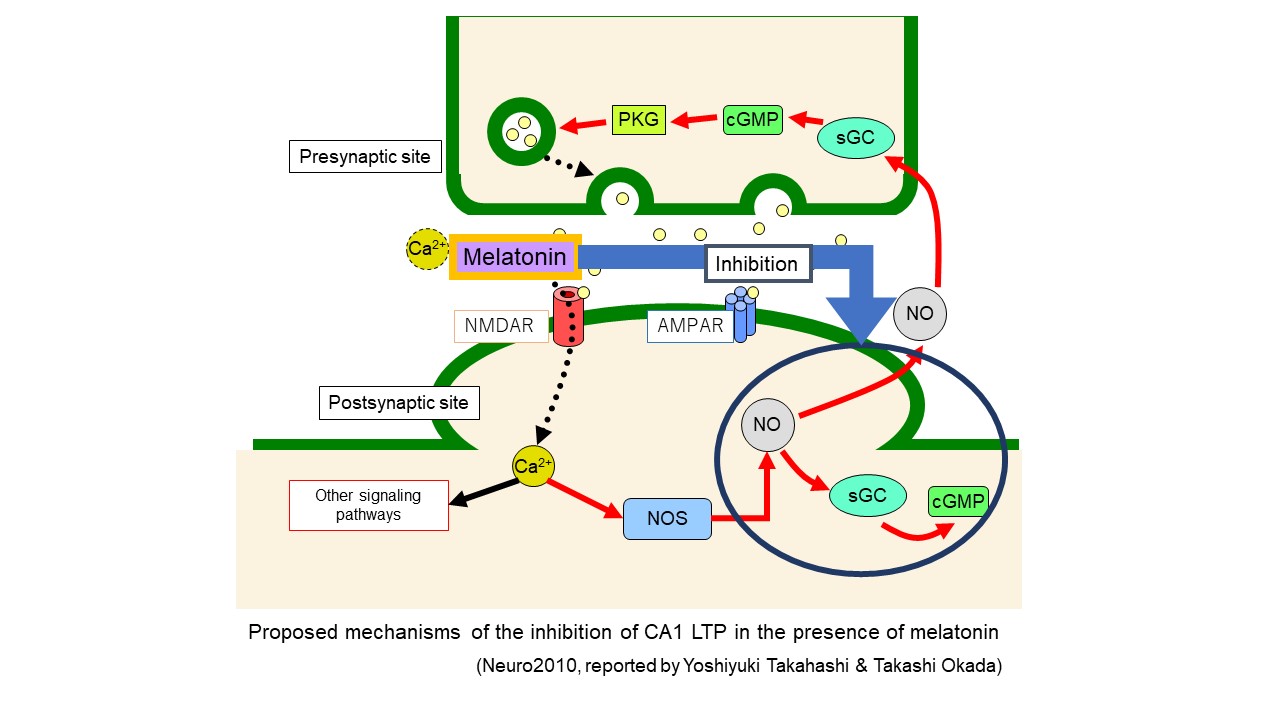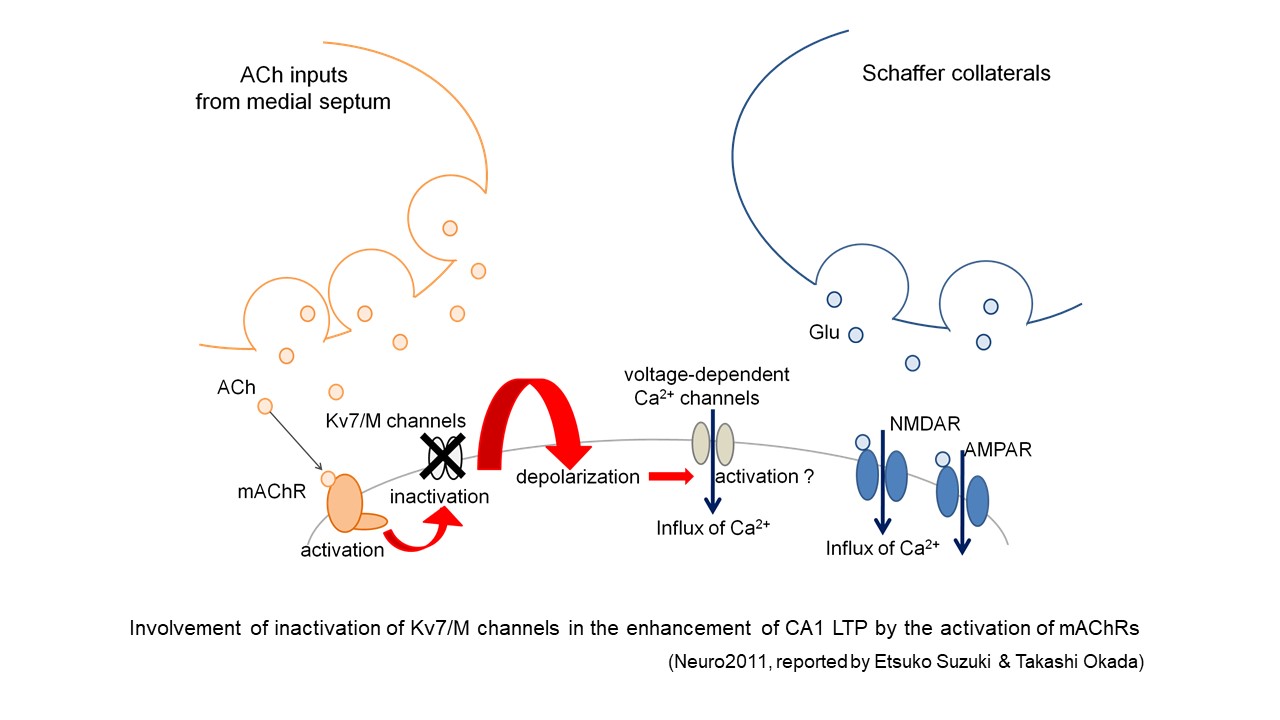Physiological psychology on brain mechanisms of memory
Takashi OKADA,Professor
Faculty of Human Sciences, Department of Psycology
- Research

【Abstract】
The hippocampus is regarded as one of the essential brain regions for memory function. We examined factors and processes that regulate long-term potentiation (LTP) in hippocampal synaptic transmission, and mechanisms of circadian rhythm in memory performance. Electrophysiological experiments using rodent hippocampal slice preparations and behavioral experiments using animals revealed that (1) Kv7/M potassium ion channels are involved in acetylcholine receptor activation-induced promotion of hippocampal CA1 LTP, (2) inhibition of CA1 LTP in the presence of pineal hormone melatonin is via the postsynaptic NO signaling pathway, and (3) circadian variation of spatial memory performance depends on the melatonin level.

【Future prospects】
We propose that the elucidation of memory function in physiological psychology facilitates the understanding of essential mental processes in human adaptative behaviors and will lead to the development of effective support for memory disorders.
- Stratum oriens stimulation-evoked modulation of hippocampal long-term potentiation involves the activation of muscarinic acetylcholine receptors and the inhibition of Kv7/M potassium ion channels
- Involvement of the nitric oxide cascade in melatonin-induced inhibition of long-term potentiation at hippocampal CA1 synapses
- The diurnal variation of performance of the novel location recognition task in male rats

